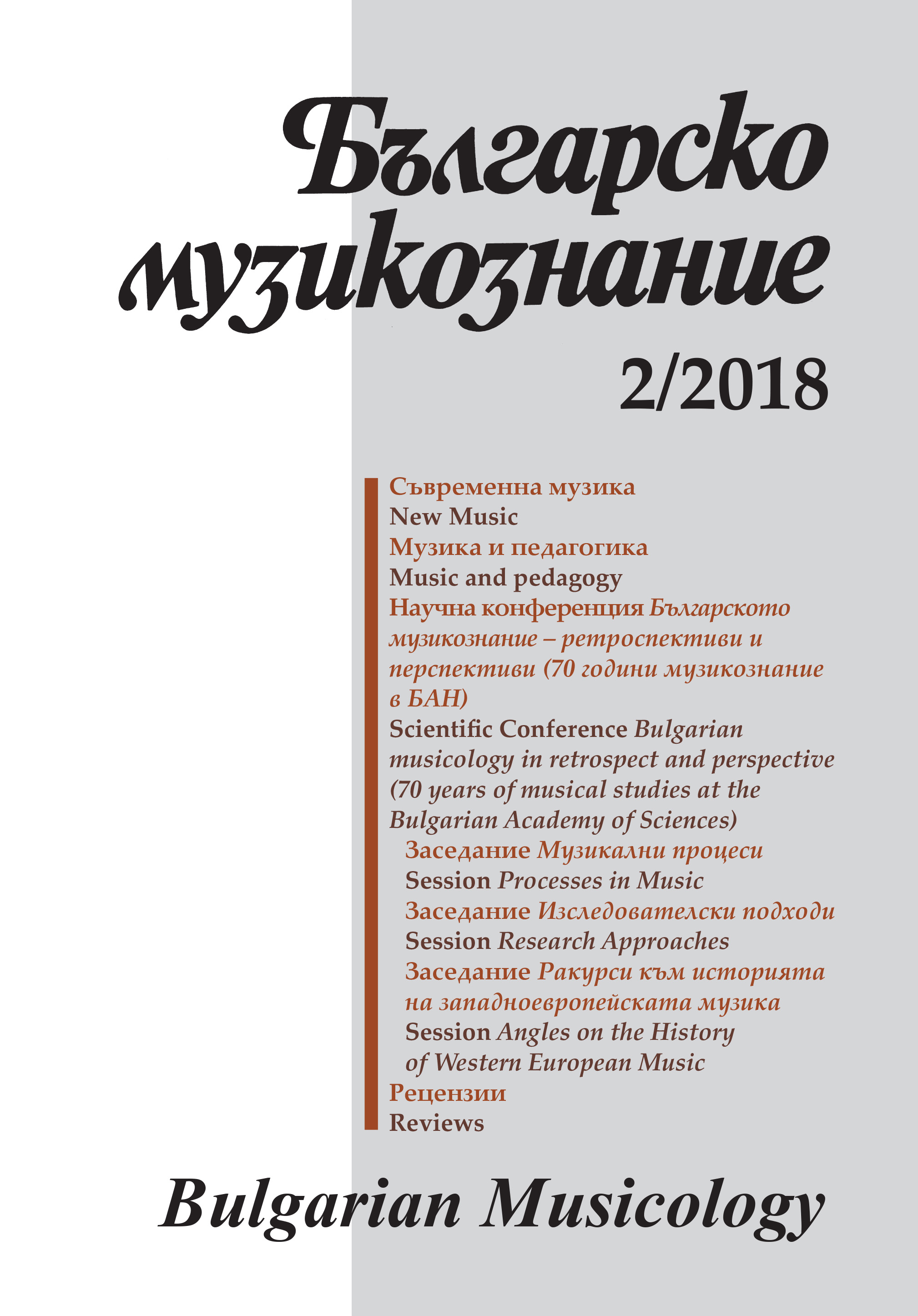Вариации върху „да кажеш нещо различно, е да кажеш нещо различно“
Variations upon When you say something differently, you say something different
Author(s): Yavor GenovSubject(s): History, Fine Arts / Performing Arts, Music, Modern Age
Published by: Институт за изследване на изкуствата, Българска академия на науките
Summary/Abstract: When people of the 19th century have turned back to the art of past ages, they have observed a matter rather unfamiliar for them in order to involve it in his own creations. Musical history of the 20th century gradually changed its focus, reflecting its objects as autonomous existing. Terms like “authenticity” and “objectivity” became cross points for the historicism of the modern age but that pathos was overcame as well. Along with the musical history as an academic discipline, or may be as its result appeared a new performing movement at the 1960, searching to embody in sound the ideas, accepted as historically correct. Thus, the musical historicism – both on theoretical and performing level experiences unique boom during the last five decades. Of course, the foundation behind this musical reality are revised periodically and if such points like “the historical reality” are no longer accepted without doubts, for the people of post-modern times who find themselves related with music of the past, the question about the reasons behind their relation remains open. Florentine Camerata has desired to restore the Ancient drama and has searched to weave the expression of music and speech. Today is well known that they have not restored the Antiquity. On the other hand, they have changed the musical image of their own time and the decades to come. Searching to restore music of the past, people of today inevitably change their perspectives and points of view, but behind all that, one is unchanged – the huge theoretical and performing energy, dedicated to music, whose context certainly cannot be restored, is directed to ourselves after all. As far as it is a way of our self-expression, the early music is much less “historical artifact” rather than “modern, live music”. The article in presence is a brief observation on changing the foundations of historical musicology and performance practice during the last decades and defends the idea that the historical object changes depending mostly on the focus, background and purpose of its own observer.
Journal: Българско музикознание
- Issue Year: 2018
- Issue No: 2
- Page Range: 106-114
- Page Count: 9
- Language: Bulgarian
- Content File-PDF

